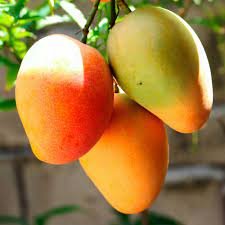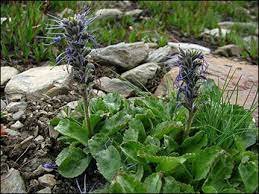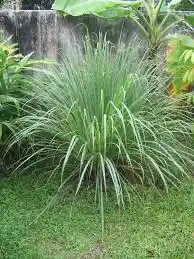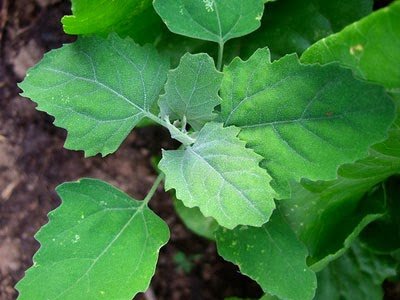What is Liquid Fermented Organic Manure?
Liquid Fermented Organic Manure (LFOM) is an organic liquid fertilizer produced through the anaerobic fermentation of organic materials such as plant residues, animal manure, and other organic waste. This process utilizes beneficial microorganisms to decompose the organic matter, resulting in a nutrient-rich liquid that can be applied directly to plants and soil.
Sources and Types of Liquid Fermented Organic Manure
- Plant-Based LFOM:
- Source: Fermented plant materials such as green leafy vegetables, weeds, and crop residues.
- Characteristics: Rich in plant growth hormones, enzymes, and micronutrients.
- Animal Manure-Based LFOM:
- Source: Fermented animal manure, including cow dung, poultry manure, and goat manure.
- Characteristics: High in nitrogen and other essential nutrients, with a strong microbial profile.
- Compost Tea:
- Source: Aerated or anaerobic infusion of compost in water, often enhanced with microbial inoculants.
- Characteristics: Balanced nutrient profile with high microbial activity.
- Fermented Plant Juice (FPJ):
- Source: Juice extracted from plants and fermented with sugar and microbial inoculants.
- Characteristics: Liquid form, high in nutrients and beneficial compounds like amino acids and vitamins.
Characteristics of Liquid Fermented Organic Manure
- Appearance: Typically dark brown to black liquid.
- Odor: Earthy or slightly sour smell, indicating proper fermentation.
- Consistency: Liquid, easy to dilute and apply.
- pH: Slightly acidic to neutral (5.5 to 7.0), suitable for most crops.
- Microbial Activity: High count of beneficial microorganisms, including bacteria, fungi, and actinomycetes.
Nutrient Value per 1 L
The nutrient content of Liquid Fermented Organic Manure can vary depending on the source materials and fermentation process. On average, the nutrient values per 1 liter of LFOM are:
- Nitrogen (N): 0.2% – 0.5%
- Phosphorus (P2O5): 0.1% – 0.3%
- Potassium (K2O): 0.3% – 0.7%
- Calcium (Ca): 0.1% – 0.2%
- Magnesium (Mg): 0.05% – 0.1%
- Micronutrients: Trace amounts of essential micronutrients such as iron (Fe), manganese (Mn), zinc (Zn), and copper (Cu).
Relevance and Importance
- Quick Nutrient Uptake: The liquid form allows for rapid absorption of nutrients by plants through foliar application or soil drenching.
- Enhanced Soil Health: Boosts microbial activity and organic matter content in the soil, improving soil structure and fertility.
- Sustainable Agriculture: Reduces dependence on chemical fertilizers, promoting eco-friendly farming practices.
- Cost-Effectiveness: Often produced from readily available organic waste, making it an economical alternative to synthetic fertilizers.
- Environmental Protection: Minimizes nutrient runoff and leaching, reducing the risk of water pollution.
Use and Benefits
- Foliar Feeding: Can be sprayed directly onto plant leaves, providing immediate nutrient uptake and stimulating growth.
- Soil Application: Can be applied to the soil, enhancing root development and overall soil health.
- Seed Treatment: Seeds can be soaked in LFOM to promote germination and early seedling vigor.
- Compost Activation: Can be used to activate and accelerate the composting process.
Crops Benefiting from Liquid Fermented Organic Manure
Liquid Fermented Organic Manure can be used for a wide variety of crops, including:
- Vegetables: Tomatoes, potatoes, carrots, cucumbers, peppers, lettuce.
- Application Stage: Apply as a foliar spray during the vegetative and fruiting stages. Soil drenching can be done before planting and during the growing season.
- Fruits: Apples, grapes, strawberries, citrus fruits.
- Application Stage: Apply as a foliar spray during the flowering and fruiting stages. Soil application can be done during planting and as a periodic treatment.
- Cereals: Wheat, rice, maize, barley, oats.
- Application Stage: Apply to the soil before sowing and as a foliar spray during the tillering and grain-filling stages.
- Legumes: Soybeans, peas, lentils, chickpeas, beans.
- Application Stage: Apply to the soil before planting and as a foliar spray during flowering and pod formation stages.
- Root Crops: Radishes, beets, turnips, carrots.
- Application Stage: Apply to the soil before sowing and as a foliar spray during root development.
- Leafy Greens: Spinach, kale, cabbage, lettuce.
- Application Stage: Apply as a foliar spray during the vegetative stage. Soil application can be done before planting and periodically throughout the growing season.
Benefits at Different Crop Stages
- Germination and Early Growth: Promotes strong root development and early plant establishment due to readily available nutrients and beneficial microorganisms.
- Vegetative Stage: Enhances plant vigor and growth, leading to robust development and increased resistance to stresses.
- Reproductive Stage: Improves flowering and fruit set, resulting in higher yields and better quality produce.
Conclusion
Liquid Fermented Organic Manure (LFOM) is a versatile and effective organic fertilizer that offers numerous benefits for sustainable agriculture. By providing essential nutrients in a readily available form and enhancing soil health through beneficial microorganisms, LFOM supports robust plant growth and improves soil fertility. Its use can lead to healthier crops, higher yields, and a reduction in the reliance on chemical fertilizers, contributing to more sustainable and environmentally friendly farming practices. Integrating LFOM into crop management can greatly benefit a wide range of crops at various stages of growth.









